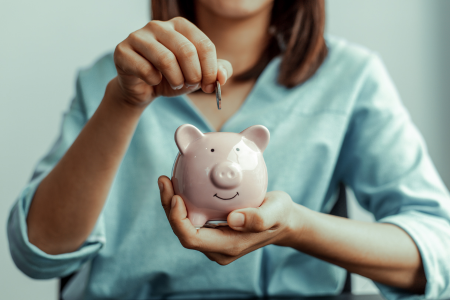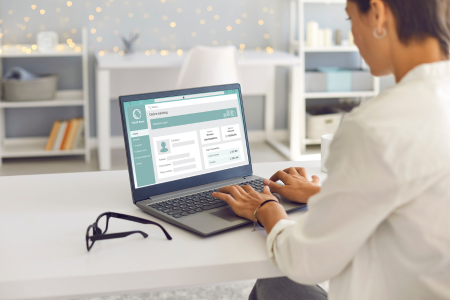5 Reasons to have Emergency Savings
Today I want to talk about something that I feel is super important: an emergency savings fund. Life has a way of throwing us curveballs. One minute you’re cruising along, doing just fine, and the next, WHAM! You’re hit with a surprise medical bill, your car decides to stop working, or—you lose your job. It’s in these moments that having an emergency fund can really save your a**. But what exactly is an emergency fund, and why is it so important for your financial well-being? In this post, I’m going to break down the ins and outs of an emergency fund so you don’t have to stress when something unexpected comes along.
What Is an Emergency Fund?
So, what’s an emergency fund? Imagine it as your financial safety net. Money set aside specifically for life’s unexpected moments. This isn’t the money you’re saving for a weekend getaway or the coffee you plan to treat yourself to next week—it’s strictly for emergencies. The idea is that when life throws you a lemons, you can handle it without dipping into your savings or piling up debt.

5 Reasons You Need An Emergency Fund:
1. Protects You From Unexpected Expenses
Life is unpredictable, and there’s a reason people don’t like surprises. Whether it’s a medical bill, an unexpected home repair, or something as simple as needing new tires, an emergency fund acts as your financial cushion. Rather than scrambling to cover these unplanned costs with credit cards, your emergency fund is there to step in and help you manage these challenges head-on.
2. Helps Avoid Debt
Without money set aside, there’s a good chance you might turn to credit cards or loans when a surprise expense comes up. And let’s be honest, those high-interest rates can turn small charges into big problems pretty quickly. The last thing you want is to be paying off a medical bill for the next few years because you didn’t have a rainy-day fund. By having an emergency stash, you can tackle financial surprises without falling into debt that’s hard to climb out of.
3. Gives You Peace of Mind
Nothing beats the feeling of knowing you’re prepared for whatever life throws your way. With an emergency fund set aside, you’ll feel a lot less anxious when things go wrong. This sense of security allows you to focus on other aspects of your life, knowing you have something to fall back on in case of emergency. Plus, it can save your mental health too—fewer late-night worries about money means more restful sleep!
4. Stops You From Sipping Into Long-Term Savings
We all have important financial goals, whether it’s saving for that dream home, funding your kids’ education, or building a retirement fund. Now, picture this: a sudden expense comes up, and instead of reaching for your emergency fund, you dip into your long-term savings. Ouch! Not only could that set back your goals, but you might also miss out on compound interest over time. An emergency fund helps protect your long-term investments, keeping your finances intact and allowing your money to grow just as you planned.
5. Gives You Control Over Your Finances
Saving money for a rainy day will motivate you to take the reins of your finances. Instead of reacting to financial emergencies as they come, you’ll be proactively prepared with a buffer. This control means you can handle unexpected issues better, keeping your financial life stable and sustainable. You’ll navigate these financial waters with confidence, making informed decisions rather than reacting in panic.

How Much Should You Save for Your Safety Cushion?
Okay, so how much should you aim to save? A good rule of thumb is to set aside 3-6 months’ worth of living expenses. But if you really want that extra peace of mind, reaching for a full 6-months’ worth is awesome. So, how do you figure out what that number is?
Start by listing all your monthly expenses. Include things like rent or mortgage, groceries, utilities, transportation costs, insurance, and any extra costs like medical bills or home repairs. Don’t forget about variable expenses, like those unexpected visits to the vet or that emergency dental work. Once you’ve got everything listed out, add it up and multiply by the number of months you want to cover.
For example, let’s say your monthly expenses total $2,500 and you’re aiming for a 6-month emergency fund. Here’s how it looks:
Monthly expenses x Number of months = Emergency fund goal
$2,500 (monthly expenses) X 6 (months) = $15,000 (emergency fund goal)
That means setting your sights on saving $15,000 to feel fully prepared for life’s little surprises.
Tips for Building an Emergency Fund
Building your emergency saving fun is more simple than you think. Here are some simple tips to help you get started and grow that fund:
Start Small and Be Consistent
If saving $15,000 seems a like it’s too much, don’t sweat it. Start with a smaller goal, like $1,000, and build from there. Your goal should be to set aside a little bit of cash each month. Even if it’s just $50 or $100, consistency matters. Before you know it, those small contributions will add up.
Automate Your Savings
One of the easiest ways to grow your emergency savings is to automate your them. Set up an automatic transfer from your checking account to your emergency fund each payday. You can treat it like a bill and pay yourself first. Out of sight, out of mind, right? This way, you won’t be tempted to spend that money, and your funds will keep steadily growing.
Use Bonus Cash Wisely
When you get unexpected cash—like a tax refund, a bonus at work, or even gifts—think about putting at least a portion of that money into your emergency fund. It’s a great way to increase your savings without feeling constricted by your regular budget.
Cut Unnecessary Expenses
Take a close look at your monthly expenses and see if there’s anything you can cut back on. Maybe there’s subscription you barely use? Or theres room to cut back on your daily coffee run. Redirect those savings into your emergency fund. Even small changes can make a significant impact over time.
Track Your Progress
I don’t know about you, but nothing motivates me more than seeing my savings funds grow. Which is why keeping track of how much you’ve saved can be super encouraging. Create a savings chart or use an app to visualize your progress. Celebrating milestones, no matter how small, can keep you motivated and remind you of the importance of your goal.
Set Up A separate Account
Ok this one is my favorite: Consider opening a separate savings account specifically for your emergency saving. This creates a mental distinction between your everyday spending and your savings, reducing the temptation to dip into it. Plus, you can even look for high-yield savings accounts to earn a little interest on your money while it sits there, growing your fund just a tad faster!

When to Use Your Emergency Fund
Now that you’ve built up that financial safety net, you might be wondering, “When should I actually use this fund?” Here are a few examples of situations where tapping into your emergency fund is justified:
- Medical Emergencies: Unexpected medical bills, surgery, or emergency dental work are all valid reasons to use your emergency fund.
- Job Loss: If you find yourself suddenly unemployed, your emergency fund can help cover living expenses while you search for a new job.
- Unexpected Home Repairs: Major repairs like fixing a leaky roof, replacing a broken furnace, or major plumbing issues often require quick, heavy financial action.
- Essential Car Repairs: If your car breaks down and needs immediate repairs, using your emergency fund can help you get back on the road.
- Unexpected Travel: Sometimes, family emergencies require immediate travel. Your emergency fund can come handy in these situations.
Bottom Line
Establishing your emergency savings fund is the first step step in building a financial future. It’s not just about having that cash set aside; it’s about instilling a sense of security and control in your life. Remember; fail to prepare, then prepare to fail. By setting aside a bit of money each month, you’ll build a strong foundation that keeps you stable and helps you stay focused on your long-term financial goals.
So why not start your savings journey today? Start figuring out how much you need to save and set up a plan that works for you. With a rock-solid emergency fund, you’ll be ready for life’s twists and turns, giving you peace of mind.
Remember, every little bit helps. Take control of your finances and prepare for whatever life decides to throw your way. You’ve got this!
Related Posts
- Unlock the Power of a High-Yield Savings Account
- How to Improve Your Budget: 5 Super Simple Strategies Every Nurse Needs to Know
- 12 Reasons a Health Savings Account for Retirement is the Best Kept Secret


Pingback: 3 Ways to Increase Your Savings | Greener Scrubs